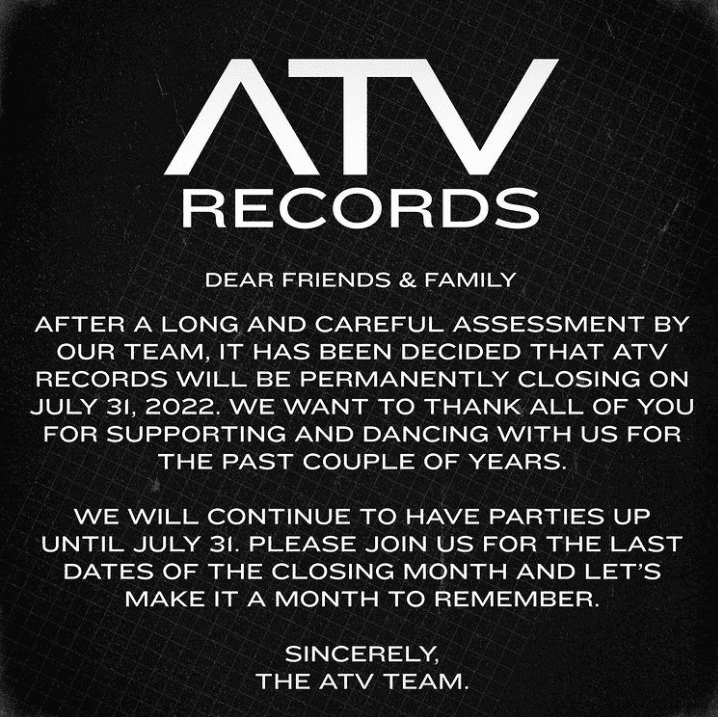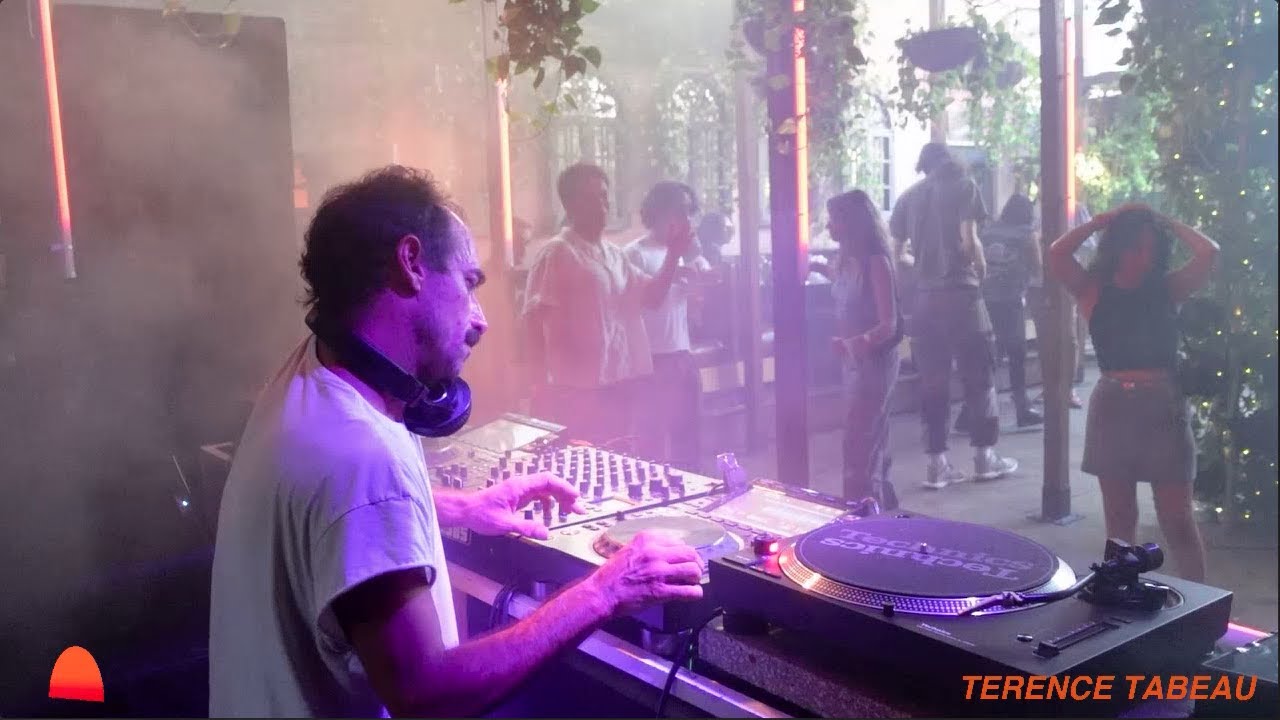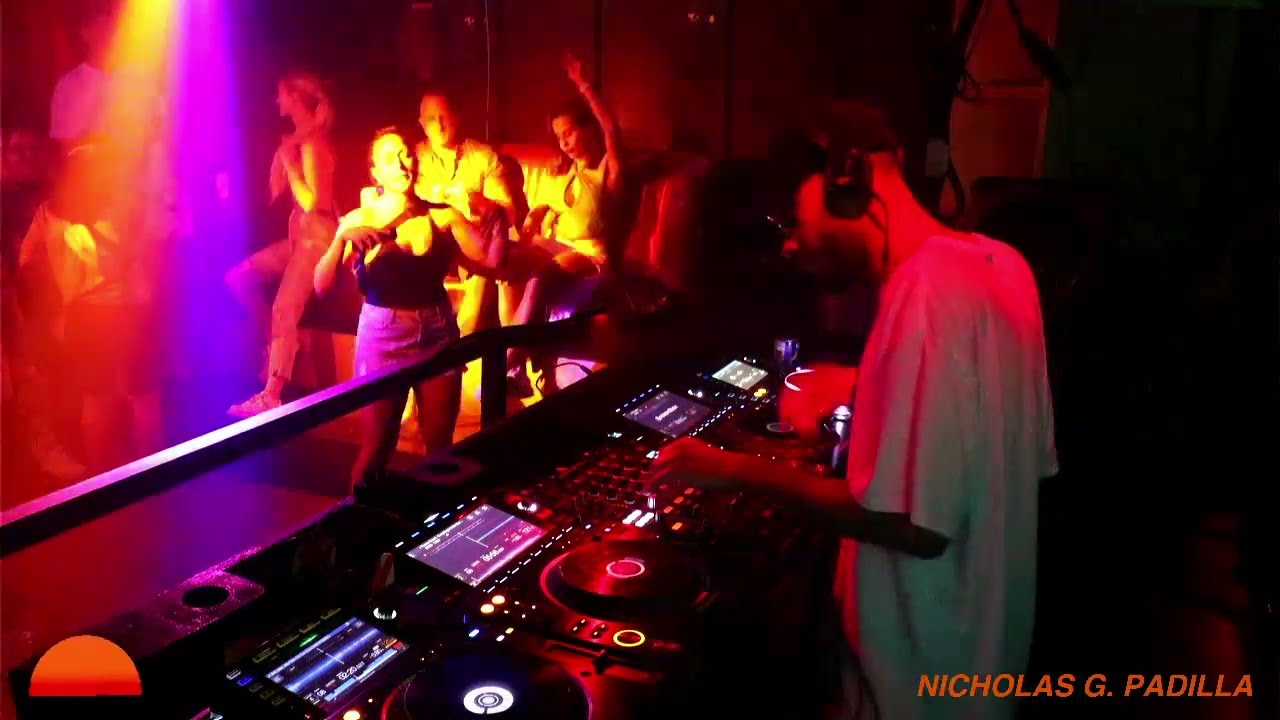ATV Records was a legendary underground dance music venue that rose to prominence in 2019. It quickly became a hot spot for music lovers and ravers alike. However, despite its initial success, the club eventually fell from grace and closed its doors for good.
In this article, we will examine the rise and fall of ATV Records. Additionally, we’ll explore the factors that contributed to its demise.
The History Of ATV Records
ATV Records opened its doors in the 2019 and quickly became a popular destination for dance music enthusiasts. ATV was short for “addicted to vinyl“. The club was based at 306 N Miami Ave, Miami. It was known for its cutting-edge sound system, which was among the best in the city. Its lineup of top-tier DJs who played everything from house to techno to drum and bass.
The space, launched by former club Electric Pickle owner Will Renuart, opened its doors in late 2019. It was formerly known as 1306. Will was a renowned vinyl collector. His set blended disco, house, electro and techno. It was done all with a playful seamlessness that enchanted the dance floors around the world.
It was a music hub for local and touring artists. These included such as Danny Daze, Jubilee, Mike Servito, Moxie and many other artists.
The club’s unique atmosphere and vibrant energy drew crowds from all walks of life. It made it a hub for the local music scene.
In its early years, ATV Records was a massive success. It drew in large crowds every weekend and hosting some of the most legendary parties in the city. However, as the years went on, the club began to experience a decline in attendance.
What Is Underground Dance Music?
Underground dance music, which was popular at ATV Records, refers to electronic dance music that is not mainstream or commercialized. It is typically associated with underground club scenes and subcultures. It includes genres such as techno, house, trance, and drum and bass.
Underground Dance Music is popular due to its unique and diverse sounds, its ability to bring people together through shared experiences, and its association with cultural movements and social identities.
The Demise Of ATV Records
One of the main reasons for this was the rise of new competing clubs that offered similar experiences at lower prices. Additionally, the club’s management failed to keep up with changing trends in dance music, resulting in a stagnant lineup that failed to attract new audiences.
Another factor that contributed to the fall of ATV Records was the changing landscape of the music industry itself. With the rise of digital music and the decline of physical album sales, many record labels began to struggle financially.
Of course, the pandemic didn’t help, as in 2020, the club was forced to close for several months.
ATV Records, which was owned by a small independent label, was hit particularly hard by these changes. The label’s financial struggles made it difficult for the club to book high-profile acts, resulting in a decline in the quality of its lineup.
Finally, ATV Records also faced challenges from the city itself. As the club became more popular, it began to draw complaints from nearby residents who were unhappy with the noise and crowds. The club’s management attempted to address these concerns by implementing noise reduction measures and limiting capacity, but these efforts were ultimately unsuccessful. The city eventually revoked the club’s license, forcing it to close its doors for good.
The Closing Party
ATV Records, home to a record store, nightclub and bar, announced the news via Instagram late on Thursday, June 23rd that it was closing after two and a half years of operations. It would continue to host parties until July 31st 2022, which was its last day of operation.
Local party crew Jezebel hosted Tim Reaper alongside DJ Swisha and Kush Jones for its last proper night at the club.
In an article in June 2022 with the partner of the club Aramis Lorie, she did suggest a closure that was a result of renovation, not permanent closure of the club. The focus was going to be more on the restaurant aspect of the company, even bringing in a chef to assist in this new project.
The space would still have a nightlife aspect, but it wouldn’t be like the old style of music of techno and house music, but champion more live music, specifically world music.
Lorie does suspect that with the new development of the Miami Worldcenter, it would change the vibe of the area, surrounding ATV Records for the better. There was talk that it could transform the formally blighted area at the edge of downtown into a destination filled with condos, restaurants and more open spaces.
Summary – ATV Records
In conclusion, the rise and fall of ATV Records is a cautionary tale about the challenges faced by businesses in the music industry. Despite its initial success, the club was unable to adapt to changing trends and rising competition, ultimately leading to its demise. While the club will always be remembered as a legendary venue that helped shape the local music scene, its closure serves as a reminder that even the most successful businesses must constantly evolve and adapt to survive.








